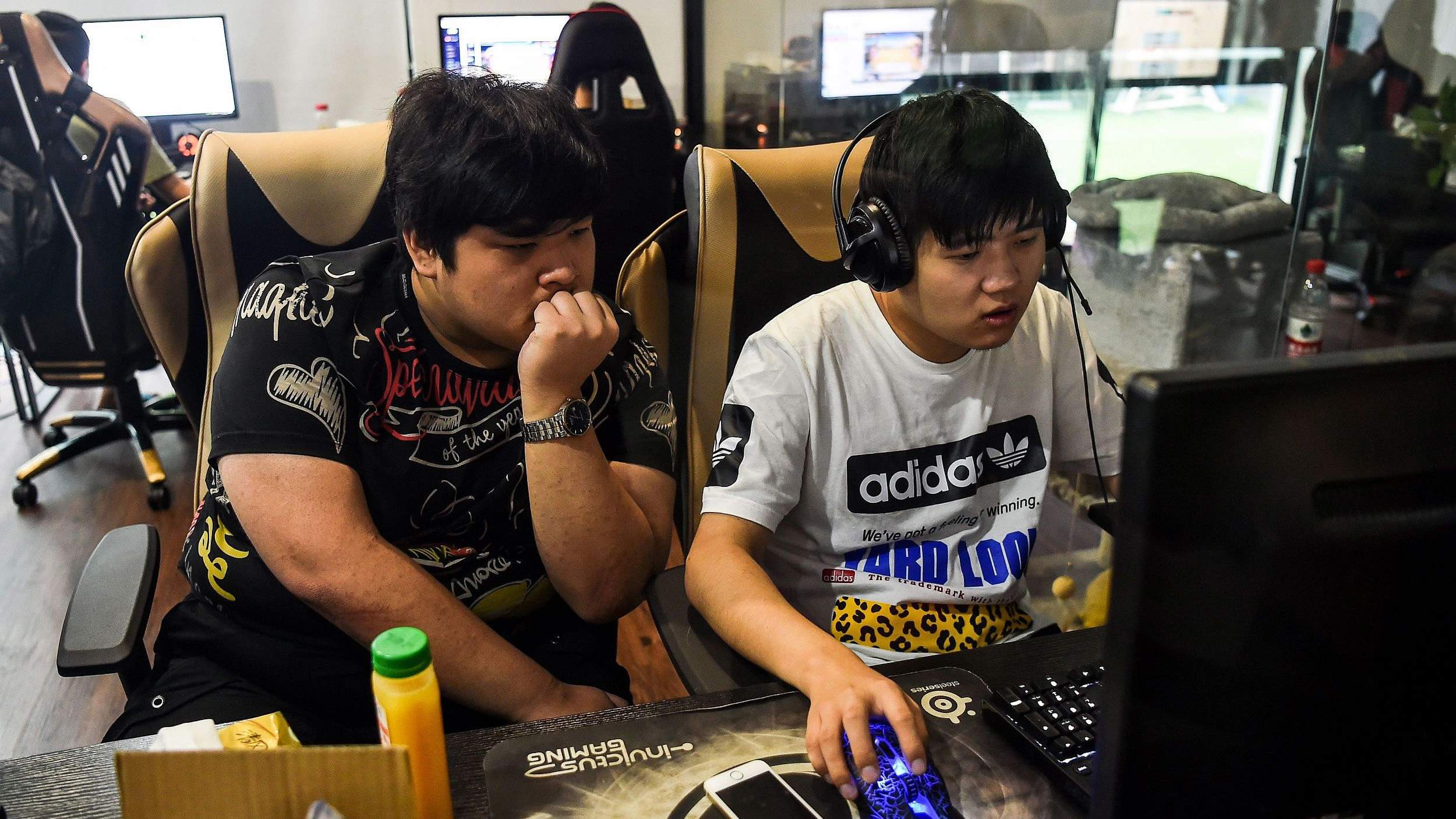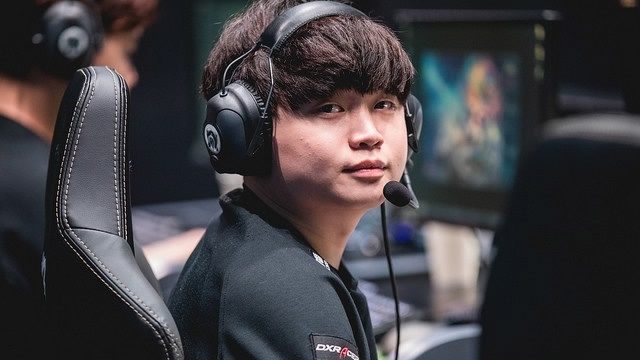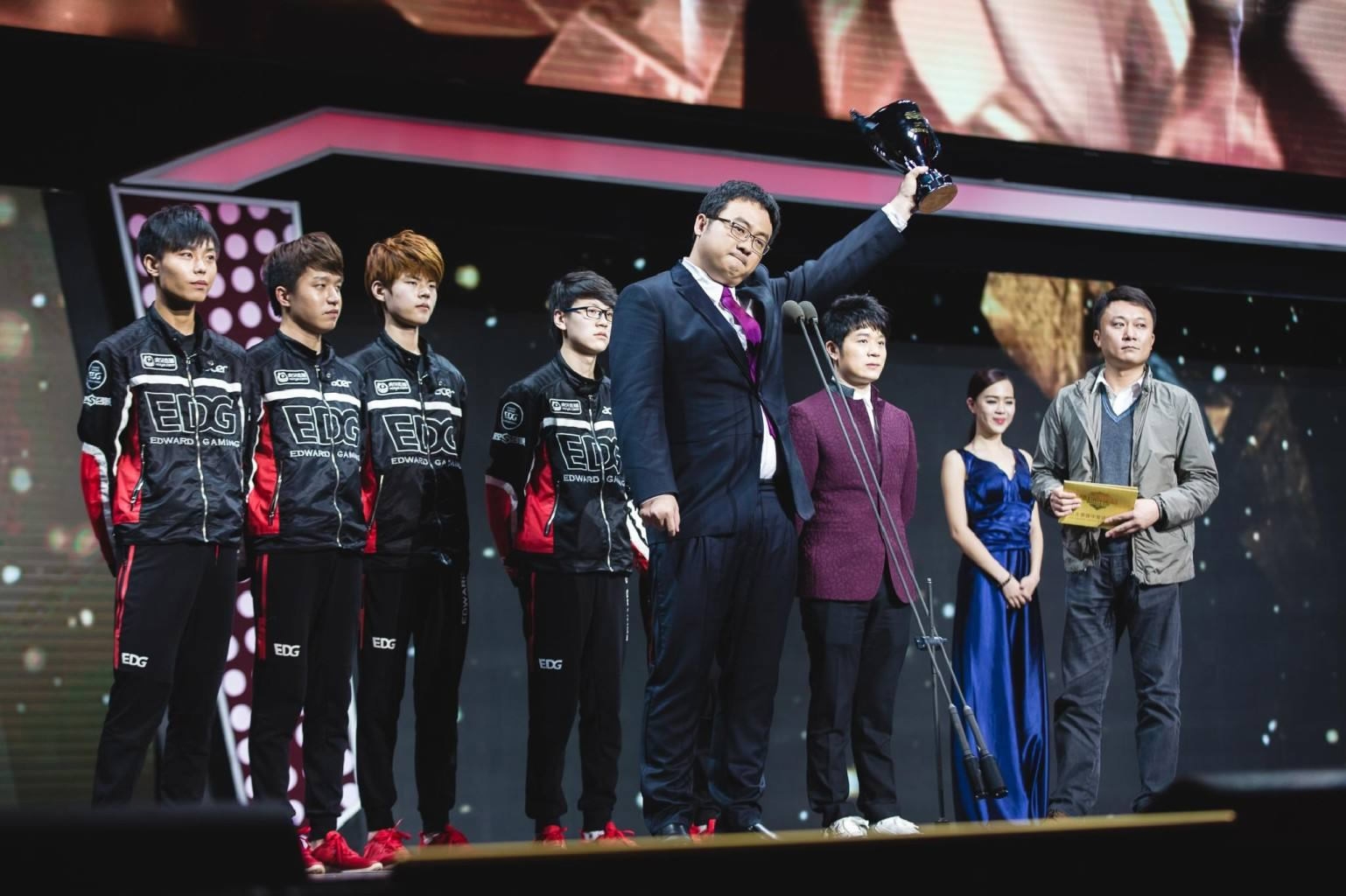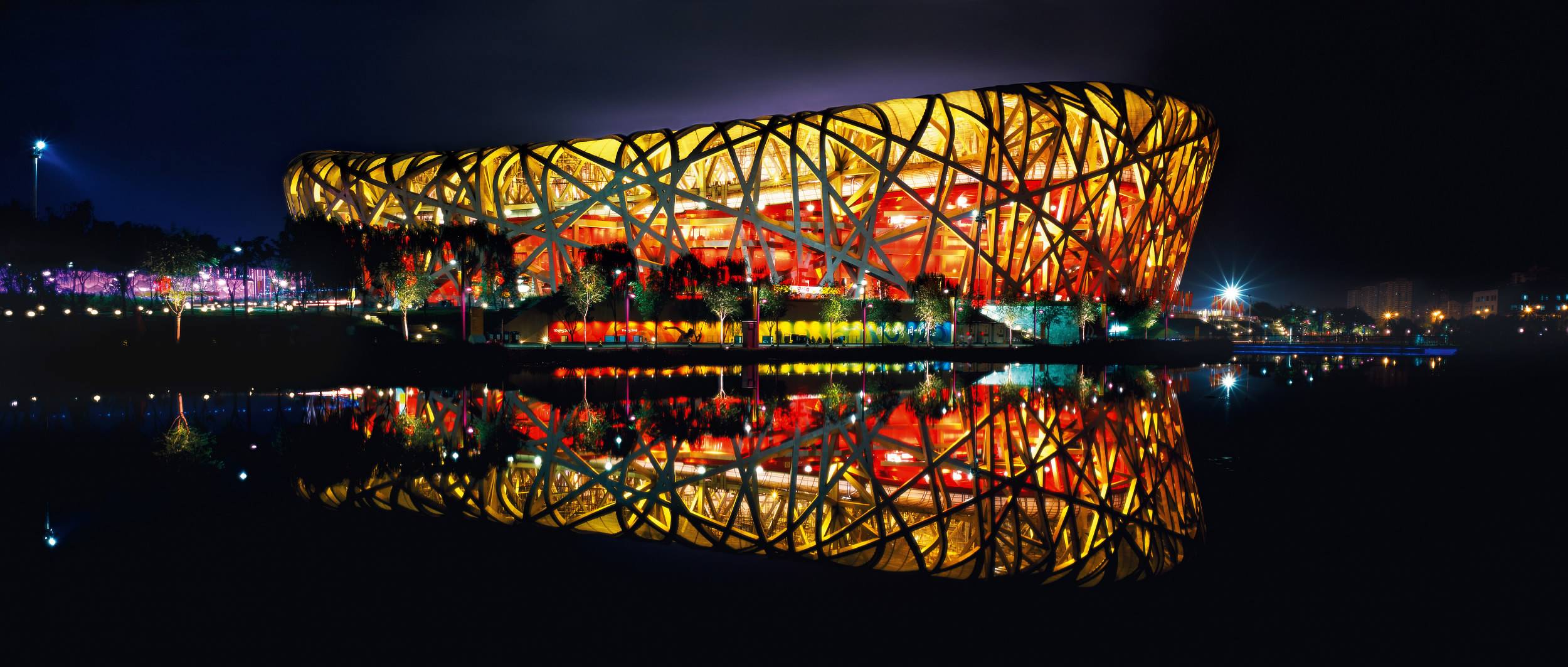
Business
18:29, 02-Nov-2017
Are computer games headed for the Olympics?
by Nicholas Moore

The final of one of the world’s most prestigious e-sports tournaments takes place in Beijing on Saturday, marking China’s rise as one of the biggest powers in the world of professional video gaming.
In an industry that sees gamers earn millions of US dollars and attract huge audiences, is China ready to lead the push for e-sports to receive further recognition around the world?
What are e-sports?
On the surface, competitive video-gaming doesn’t sound like it should qualify as a sport, let alone a spectator sport.
However the 21st century has seen the concept of e-sports develop into a phenomenon in its own right, particularly in South Korea and China.

Some of South Korea's best Starcraft 2 players face off in Seoul, 2012. /VCG Photo
Some of South Korea's best Starcraft 2 players face off in Seoul, 2012. /VCG Photo
League of Legends (the World Championships of LoL conclude in Beijing this weekend), Dota 2 and Starcraft 2 probably aren't familiar names to e-sports outsiders.
But these multiplayer online battle and strategy games have a huge global following.
The best gamers can join teams and compete in national and international tournaments, streamed live to millions of amateur gamers and fans who cheer on their countries and favorite players.
Thanks to the growth of e-sports in recent years, champion gamers have been elevated to celebrity status, earning huge sums from prize money and sponsorships.
The choice of venue for this year’s League of Legends world finals – the 80,000-seater Bird’s Nest stadium in Beijing – gives some impression of the size of the current fanbase and its potential for future growth.
So how big are Chinese e-sports?
A study by Niko Partners earlier this year estimated that professional e-sports in China would be worth 1.26 billion US dollars at the end of 2017.
That doesn’t include the revenue from people playing video games – China is already the world’s biggest gaming market, with an estimated 27.6 billion US dollars spent this year.

Jian Zihao, better known as "UZI," won more than 250,000 US dollars playing LoL by the age of 20. /lolesports Photo
Jian Zihao, better known as "UZI," won more than 250,000 US dollars playing LoL by the age of 20. /lolesports Photo
According to www.esportsearnings.com, nine of the top 20 highest-earning e-sports stars in the world are Chinese. China's most successful gamer is Li Peng, has already raked in career earnings of just under two million US dollars at the age of just 22.
This year’s LoL tournament will see 5.07 million US dollars given out in prize money, including 2.03 million US dollars to the champions.
More than half of that prize money was contributed by fans around the world, showcasing how much financial potential there is in the sector.
And it’s not just the gamers who are making millions from e-sports. Niko Partners says that this year, livestreaming of e-sports in China will bring in revenue of 625 million US dollars – a good return from an estimated 200 million fans in the country.
After Amazon raised eyebrows by spending almost one billion US dollars on e-sports livestreaming platform Twitch in 2014, it's now looking like a shrewd move.
China’s answer to Twitch - Douyu TV - raised 226 million US dollars in a funding round last August, while rival panda.tv is owned by Wang Sicong – known for being the son of China’s richest man, Wang Jianlin.
Tech giant Tencent has also announced plans to give e-sports its financial backing, announcing a five-year plan worth 100 billion yuan (15.1 billion US dollars) to raise the sector’s profile and make China a global leader in professional gaming.
Perhaps China’s biggest rival for the crown of world e-sports capital is South Korea – home to the last five LoL world champions. One big difference between teams from the two countries can be seen in their names – the finalists battling out on Saturday are both from South Korea, and called Samsung Galaxy and SK telecom t1.
The financial backing of these major sponsors arguably gives the South Korean teams an edge, with the demands of competitive gaming requiring high-level coaching, fitness regimes and the best equipment and technology available.
However, Chinese e-sports teams are gaining sponsors, and working with some big names overseas. The popular FIFA series of football video games has spawned its own e-sports following, with China’s EDG – better known for prowess in LoL and Counterstrike – pairing up with French soccer giants Olympique Lyonnais to form a team.

EDG, one of China's most successful e-sports teams, wins yet another trophy. /lolesports Photo
EDG, one of China's most successful e-sports teams, wins yet another trophy. /lolesports Photo
What’s the future for e-sports?
Naysayers may joke that there is no way e-sports can compete with “real sports,” but its recent growth means that professional gaming is being taken more and more seriously.
On Saturday, the International Olympic Committee met in Lausanne, Switzerland, where officials discussed including e-sports in future competition, saying gaming could “provide a platform for engagement with the Olympic Movement.”

The Birds Nest, Beijing National Stadium, which will host the LoL World Championships final on Saturday. /VCG Photo
The Birds Nest, Beijing National Stadium, which will host the LoL World Championships final on Saturday. /VCG Photo
The IOC also said e-sports “could be considered as a sporting activity,” citing the intense preparation and training of gamers as “comparable to athletes in traditional sports.”
E-sports might not have full Olympic approval just yet, but the Asian Games in 2022 – to be hosted in China – will include them for the first time.
With China’s huge e-sports following, the country is already in pole position to take the lead when the time is right to recognize e-sports across the world.

SITEMAP
Copyright © 2018 CGTN. Beijing ICP prepared NO.16065310-3
Copyright © 2018 CGTN. Beijing ICP prepared NO.16065310-3